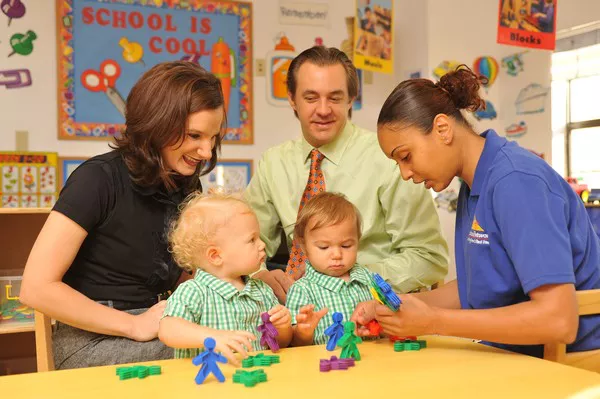As your baby grows, they will go through different developmental stages, and their needs and interests will change. It’s important to consider these changes when choosing toys for your baby. In this article, we’ll take a closer look at the different developmental stages and the types of toys that are appropriate for each stage.
Newborns: Sensory Stimulation
When your baby is a newborn, they will be adjusting to life outside of the womb. They will be focused on feeding, sleeping, and bonding with you. During this time, sensory stimulation is essential for your baby’s development. Sensory toys, such as soft rattles, textured balls, or plush toys with different textures, can help stimulate your baby’s senses and promote early development.
You can also use everyday objects, such as scarves or textured blankets, to engage your baby’s senses. Holding your baby close, talking, singing, and reading to them can also provide the sensory stimulation they need.
2-3 Months: Motor Development
At around two to three months, your baby’s motor skills will start to develop. They will begin to lift their head, reach for objects, and start to grasp toys. This is a good time to start introducing simple toys that can be grasped and explored. Soft balls, toys with simple patterns, and lightweight toys that can be held and manipulated are all appropriate for this stage.
Toys that can be hung above your baby, such as mobiles or activity gyms, can also be helpful in promoting their motor development. These toys encourage your baby to reach, grasp, and explore the objects in their environment.
4-6 Months: Cause and Effect
At around four to six months, your baby will begin to understand cause and effect relationships. They will enjoy toys that provide cause and effect stimulation, such as toys that make noise or light up when touched. Activity gyms with different textures, mirrors, and toys with buttons or knobs that produce sounds or lights are perfect for this stage.
Your baby will also begin to enjoy games like peek-a-boo or toys that hide and reappear. These types of toys help to stimulate their cognitive development and promote social interaction.
7-9 Months: Crawling and Exploration
Between seven to nine months, your baby will become more mobile. They will start crawling, pulling themselves up, and exploring their environment. Toys that encourage movement and exploration, such as push toys, ride-on toys, and activity cubes, are perfect for this stage.
Your baby will also begin to understand object permanence, which means they will realize that objects still exist even when they are out of sight. Toys that promote object permanence, such as shape sorters, nesting cups, and stacking blocks, can help develop your baby’s cognitive skills.
10-12 Months: Problem Solving
As your baby approaches their first birthday, they will begin to become more interested in problem-solving toys. Toys that require manipulation or problem-solving, such as shape sorters, stacking blocks, and puzzles, can be engaging and help develop your baby’s cognitive skills.
At this stage, your baby will also enjoy toys that allow them to imitate adult behavior, such as play kitchens, tool sets, or dolls. These toys promote imaginative play and help develop their social and emotional skills.
Other Considerations
While considering your baby’s developmental stage is important, there are other factors to consider when choosing toys for your baby. Safety should always be your top priority when selecting toys. Make sure to choose toys that are age-appropriate, durable, and free of small parts that could be a choking hazard.
You’ll also want to consider your baby’s personality and interests. Some babies are more interested in toys that light up and make noise, while others may prefer toys that are soft and cuddly. Observing your baby’s reactions to different toys can help you understand what types of toys they enjoy and which ones they might not be interested in.
It’s also important to think about the environment in which your baby will be playing with their toys. Make sure to choose toys that are easy to clean and disinfect, as babies tend to put everything in their mouths. Avoid toys that are made of toxic materials or have sharp edges or points that could be dangerous.
Finally, it’s a good idea to rotate your baby’s toys regularly. This can help keep them engaged and interested in their toys. You don’t need to buy new toys all the time – simply putting some of their toys away and bringing them back out a few weeks later can be enough to spark their interest again.
In conclusion, when it comes to choosing toys for your baby, it’s important to consider their developmental stage, safety, personality, and environment. Sensory toys, motor development toys, cause and effect toys, crawling and exploration toys, and problem-solving toys are all appropriate for different stages of development. By choosing toys that are appropriate for your baby’s stage of development and taking other factors into consideration, you can help promote their cognitive, social, and emotional development while keeping them safe and engaged.


